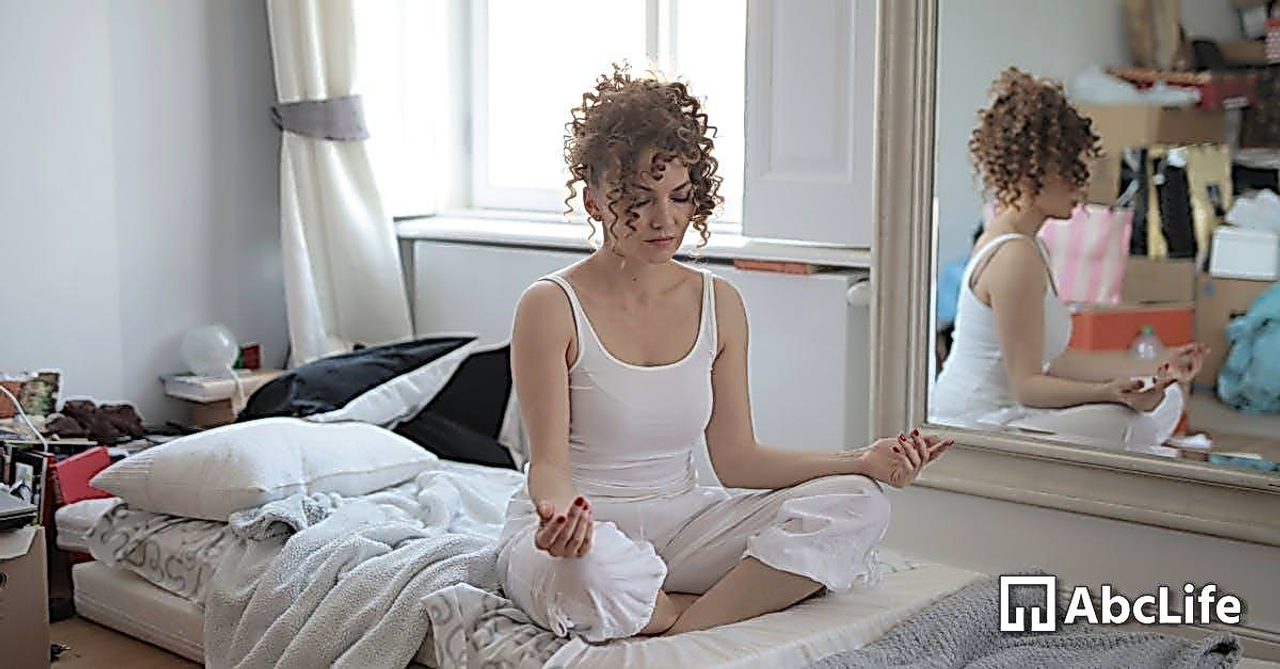The Relaxation Science: How to De-Stress and Improve Your Health
Relaxation is more than just a state of mind; it is a necessary component of overall health and wellness. The science of relaxation investigates the physiological and psychological benefits of relaxation, as well as how it can aid in stress management and the attainment of a more balanced and peaceful state of mind. In this article, we delve into the science of relaxation, looking at the most recent research findings and discussing effective strategies for de-stressing and improving your health. Whether you suffer from chronic stress or anxiety, or you simply want to improve your overall well-being, the insights and tips presented here can assist you in achieving greater peace of mind and a healthier, happier you.
Understanding the Science Behind Relaxation

Relaxation is critical to our overall health and happiness. It is the process of releasing tension and stress from the body and mind, and it has a significant impact on our physical health. While we frequently associate relaxation with simply sitting back and doing nothing, there is a scientific process that involves both physical and mental aspects.
When we are stressed, our bodies release cortisol, a hormone that can harm our immune system, blood pressure, and blood sugar levels, among other things. Relaxation, on the other hand, lowers cortisol levels and causes the release of endorphins, also known as "feel-good" hormones. This has a number of advantages, including decreased anxiety, improved sleep quality, and improved digestion.
But relaxation is about more than just the physical benefits. It is also a matter of mental clarity. We can focus better, problem-solve better, and make better decisions when we can calm our minds and slow down our thoughts. Finding ways to relax, whether through meditation, yoga, or simply taking a nap, is not only enjoyable but also necessary for our overall health and well-being.
Relaxation's Physiological and Psychological Advantages

Relaxation is an important part of living a healthy life. It has both physical and psychological benefits. According to research, relaxation can lower blood pressure, heart rate, and breathing rate, all of which are physical indicators of stress. Relaxation can also help to boost the immune system, improve digestion, and alleviate muscle tension and pain.
Relaxation can help with anxiety, depression, and feelings of rage and hostility. It has been shown to improve mood, self-esteem, and overall well-being. Relaxation can also boost creativity, memory, and concentration. When the body and mind are at ease, it is easier to think clearly and objectively, resulting in better decision making and problem solving.
Overall, incorporating relaxation techniques into your daily life can improve both your physical and mental health. As stress remains a major issue in today's society, finding ways to relax and de-stress is critical to living a balanced and healthy life.
Techniques and Practices for Stress Management
Stress is an unavoidable part of life, and it can have serious consequences for your physical and mental health. As a result, it is critical to manage stress on a regular basis in order to stay healthy and productive. Here are some techniques and practices for stress management:
Healthy Eating and Regular Exercise
Healthy eating and regular exercise can help you manage your stress. Stress can be reduced by eating a well-balanced diet rich in fruits, vegetables, and whole grains. Exercise causes your body to release endorphins, which are natural mood boosters that can aid in stress reduction.
Meditation and Mindfulness
Meditation and mindfulness can help you calm and clear your mind, which can help you reduce stress. Regular meditation and mindfulness practices can help you become more aware of your thoughts and emotions, allowing you to manage stress better.
Social Support
Having a supportive network of friends and family can aid in stress management. Social support can help you feel understood, loved, and appreciated, allowing you to overcome stressors.
Time Management
Effective time management can also aid in stress reduction. Setting realistic deadlines, prioritizing tasks, and breaking them down into smaller, manageable steps can help you stay on track, avoid procrastination, and reduce stress.
Yoga and Other Mind-Body Practices for Relaxation
Yoga and other mind-body practices have been used to relieve stress for thousands of years. Many of us suffer from chronic stress in our modern era of high-tech gadgets and fast-paced living, which can have a devastating impact on our physical and emotional health. Yoga, meditation, tai chi, and other mind-body practices can be extremely beneficial in reducing stress and improving overall well-being.
Yoga, in particular, has been practiced for centuries as a highly effective relaxation technique. It consists of a series of postures that are intended to improve flexibility, strength, and balance, as well as to calm the mind and reduce stress. Regular yoga practice has been shown in studies to help lower blood pressure, reduce anxiety and depression, and even improve sleep quality. Other mind-body practices, such as meditation, breathing exercises, and guided imagery, can also be effective stress-reduction tools.
Finally, if you want to de-stress and improve your health, consider incorporating yoga and other mind-body practices into your routine. With consistent practice, you can achieve a profound sense of well-being and relaxation that will benefit all aspects of your life.
The Importance of Sleep for Stress Management
Sleep is an important part of living a healthy lifestyle. It aids the body's ability to repair and rejuvenate itself, as well as playing an important role in stress management. Sleep deprivation can have serious consequences for both physical and psychological health, increasing the risk of heart disease, diabetes, anxiety, and depression. Adequate sleep, on the other hand, has been shown to help reduce stress, improve mood, and improve overall health and wellbeing.
Our bodies release hormones that promote relaxation and calmness while we sleep. These hormones help to regulate mood and emotions, reducing stress and anxiety. Furthermore, sleep allows the brain to consolidate memories and process emotions, which makes it easier to cope with stressors. In contrast, a lack of sleep causes the release of stress hormones such as cortisol and adrenaline, which can aggravate anxiety and other negative emotions.
As a result, in order to effectively manage stress, it is critical to prioritize sleep and focus on creating an optimal sleep environment. This can include developing a consistent sleep routine, limiting electronic device exposure before bedtime, keeping the bedroom cool, dark, and quiet, and avoiding caffeine and alcohol before bed.
Mindfulness's Role in Stress Reduction and Management
Mindfulness is a technique that involves focusing your attention without judgment on the present moment. It can assist you in becoming more conscious of your thoughts, feelings, and bodily sensations, which can aid in relaxation and stress management. You can learn to let go of negative thoughts and emotions by remaining present and attentive to what is happening right now.
Mindfulness has been shown in studies to be effective in reducing stress, anxiety, and depression. It can also help with sleep, blood pressure, and overall psychological well-being. One of the most popular methods for incorporating mindfulness into your daily life is mindfulness meditation. In this practice, you concentrate on your breath or bodily sensations, attempting to bring your mind back to the present moment whenever it wanders.
However, there are other ways to practice mindfulness. Paying attention to your surroundings while out for a walk, for example, or eating mindfully by savoring each bite of your food can be effective in promoting relaxation and reducing stress. Mindfulness, with regular practice, can become a powerful tool for stress management and overall health and well-being.
How to Make Relaxation a Part of Your Daily Routine
With today's fast-paced lifestyle, it's critical to take a break and relax in order to improve your overall health and wellbeing. Here are a few ideas for incorporating relaxation into your daily routine:
1. Practice Deep Breathing
Deep breathing is a simple and effective stress-reduction and relaxation technique. Spend a few minutes every day sitting comfortably, closing your eyes, and concentrating on your breathing, taking slow, deep breaths in and out. This can help you get more oxygen and relax your mind and body.
2. Exercise Regularly
Regular exercise is not only good for your physical health, but it is also good for your mental health. Endorphins are natural mood boosters that are released during exercise and can help reduce stress and anxiety. It is recommended that you exercise for at least 30 minutes per day.
3. Disconnect from Technology
Technology has become such an integral part of our lives that it can be overwhelming at times. It is essential to disconnect from technology and disconnect from screens in order to give your mind a rest. To promote relaxation, try taking a break from your phone or computer for at least an hour each day.
4. Get Enough Sleep
Sleep is critical to our overall health and happiness. Getting enough sleep can help you relax, reduce stress, and improve your mood. Aim for 7-8 hours of sleep per night to allow your body to rest and recharge.
5. Practice Mindfulness
The practice of being present and aware of your thoughts and feelings without judgment is known as mindfulness. Practicing mindfulness for a few minutes each day can help you manage stress and promote relaxation. Try practicing mindfulness while doing mundane tasks like brushing your teeth or taking a shower.
You can improve your overall health and well-being by incorporating relaxation techniques into your daily routine. These simple and effective tips can help you reduce stress, improve your mood, and relax.
The Health Advantages of Regular Relaxation Practice
Stress is a normal part of life, but chronic stress can have serious consequences for our physical and mental health. Regular relaxation practices can help us manage our stress levels and avoid the negative effects that stress has on our bodies.
One of the most important advantages of relaxation practice is a reduction in the stress hormone cortisol. Cortisol levels that are too high can cause weight gain, impaired immune function, and high blood pressure. We can reduce our risk of developing stress-related health issues by practicing relaxation techniques such as deep breathing, meditation, or gentle yoga.
Relaxation practice is also beneficial to our mental health. It can help alleviate anxiety and depression symptoms, boost feelings of happiness and well-being, and improve our ability to focus and concentrate. Furthermore, regular relaxation can promote better sleep, which is necessary for good mental and physical health.
It is simple to incorporate relaxation practice into your daily routine, and it can have a significant impact on your overall health. Finding ways to reduce stress and promote relaxation, whether it's taking a few minutes to breathe deeply and clear your mind or attending a yoga or meditation class, can lead to a healthier, happier life.











